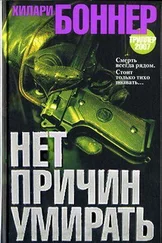Less than seven hours after his arrest, Cooke was duly charged with his daughter’s murder.
The case was put in the hands of the Crown Prosecution Service and Vogel just hoped they made a good fist of it this time. The team all went to the pub to celebrate, like they always did. Vogel, although he didn’t drink, almost always went along. Not on this occasion.
He just couldn’t face it. There were two reasons.
The first was that it still didn’t feel right to him. In spite of the overwhelming forensic evidence, he couldn’t quite believe that Terence Cooke was responsible for his daughter’s murder.
The second was that letter! After showing it to Mary, he’d decided he really mustn’t continue to carry it around with him, not in the middle of a murder investigation anyway. If he wasn’t going to do anything about it, then he should leave it alone. He’d tucked it in the desk drawer in the sitting room, where he and Mary kept all their important papers. Out of sight, out of mind. But it hadn’t quite worked like that. Even though he’d been so busy, he hadn’t been able to get the letter entirely out of his mind. It had somehow lurked there throughout.
As soon as he got home, he sat down at the little desk and, whilst Mary fetched him food and drink as usual, retrieved the letter and read it once more.
Dear Detective Inspector Vogel , it began, curiously formal in view of what was to follow, Vogel thought.
There is no easy way to say this, so I am just going to come straight out with it.
I have reason to believe that you are my half-brother.
Vogel paused there. When he’d first opened the letter that second sentence had come as such a shock, that his first inclination had been to screw the piece of notepaper into a ball and throw it away. After all, it couldn’t be true, could it?
But he’d been unable to carry that through. He’d carried on reading, as he was now doing for the umpteenth time.
A few weeks ago, I found papers amongst my mother’s belongings which made it clear that she had a child, a son, when she was just sixteen and that the boy had been adopted. My mother — our mother — was seriously ill in hospital at the time I found this out; she had suffered from a severe stroke, from which she is slowly recovering, so it was a while before I could question her about this.
She broke down. She had kept you a secret for so long that it was very hard for her to talk about you, but eventually she told me everything. How she had been given no choice but to give you up. She was a schoolgirl at the time, who fell pregnant after an ill-advised, one-night stand with a fellow pupil. She’d been able to keep track of your progress over the years; the adoption had been arranged through a family friend, who had connections with a Jewish charity which placed unwanted children (not that she didn’t want you, please understand that) with Jewish families, rather than through the more anonymous and legally-protected, local authority channels.
That is why I know your name and have been able to write to you at your place of work.
My mother married a few years later and I was born. I am thirty-four. You also have a younger half-brother, William, aged thirty, but he knows nothing of any of this yet.
My mother does know that I am writing to you, and wishes, particularly after having been so very ill, that she had dared to contact you many years ago.
I hope you will forgive this intrusion into your life, David Vogel, and I want you to know that it is meant with only the best of intentions and comes from the heart. From both our hearts, my mother’s and mine.
We both hope that you will want to meet us, that is the real intention of this letter, of course, but we will understand if you don’t. My mother’s heart has already been broken — forty-three years ago, when she was forced to give you away.
With all best wishes,
Ellen Hunt
When he’d finished reading, Vogel removed from the envelope the photograph which had accompanied the letter. A photograph, fairly recent he thought, of a woman approaching sixty (his mother), a younger woman (his sister) and a younger man (his brother). His birth family. Did he resemble any of them? He wasn’t sure. They were all very dark, as he was, dark-haired and dark-eyed, that is, but quite fair-skinned.
One of the three people in that picture had no idea he existed, until a few weeks ago. One still did not know. But the biggest secret of all had been kept from Vogel, by the two people he’d been brought up by and whom he had regarded as his natural parents.
He’d never been told that he was adopted.
Mary came back into the room, while he was still studying the picture. She was carrying a tray and placed it on the dining table, at the far end of the sitting room. She saw at once what her husband was doing, came over and laid a hand gently on his arm.
‘David, why don’t you call Eytan? You really should talk to him, you know.’
Vogel nodded in apparent agreement, but made no move to use a phone.
‘It might not even be true,’ Mary persisted.
‘It’s true all right,’ said Vogel. ‘You’ve read the letter. It wasn’t written by a nutter. There is no malice in it, just the opposite. It’s the work of an intelligent, articulate woman, someone who had assumed that I at least already knew I was adopted. After all, adoptive parents are supposed to tell their children the truth as they know it, aren’t they?’
Mary nodded, ‘Call Eytan,’ she said yet again.
Vogel glanced at his watch.
‘It’s too late,’ he said. ‘Don’t forget Israel is two hours ahead of us, perhaps I’ll call tomorrow.’
‘David, that means it isn’t yet nine o’clock in Tel Aviv. Surely not too late to call your father…?’
Mary let the last words tail away.
Vogel smiled wryly.
‘Yes,’ he said. ‘And that’s the whole point, isn’t it? I’m calling a man who, almost certainly, isn’t my father at all.’
All the same, he picked up the phone and began to dial.
There was something about Melanie Cooke which particularly attracted me from the moment I first spotted her entry on LetsMeet.com .
It wasn’t just the way she looked, although she was stunning. The photo she chose to post showed her wearing a skimpy top, those shorts they call hot pants that I so like, torn tights and very high heels. I was turned on by that, certainly, but it was what I could see in her eyes that really got me.
She was knowing, as if she had done and seen it all before. She didn’t look like the kind of kid who would run, when confronted by a man instead of a boy. Indeed, just the opposite. I told myself she was looking for someone like me, just as much as I was looking for someone like her.
We began to correspond.
She told me early on that she lived in Bristol. She might have had a knowing look in her eye, but she was totally disingenuous. I told her I lived in Bristol too. She opened up even more after that. It was if my having said I lived in the same city provided some sort of reassurance. Silly girl.
She wrote to me in detail about her family life, about the problems she had coping with her too-strict stepfather and her too-clingy father and how she hated her younger sister, whom she felt had taken her place with her mother. I couldn’t imagine sharing the kind of stuff she shared with me with my closest friend — that is, if I had any close friends, which I didn’t.
I was very careful in my replies. I said nothing suggestive at any time. Neither did I ask her to send me any photographs of a more explicit nature. I had a pretty good awareness of the trending interests of young teens. For obvious reasons, I kept up to speed. I was able to talk to her about her interests, as if I too were a teenager. I asked about the kind of music she liked, the apps and games she had installed on her laptop and phone, and I was able use the right sort of language. Or I hoped so, anyway. I could go way beyond cool, wicked, and savage. I kept up to date through the web, because teen slang changes so rapidly. I sympathised with her about her fam (family) and enquired about her squad (group of friends).
Читать дальше












